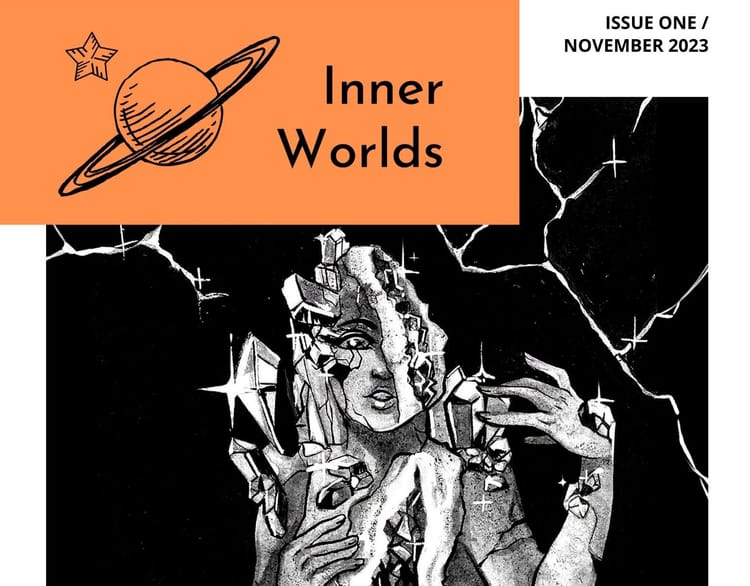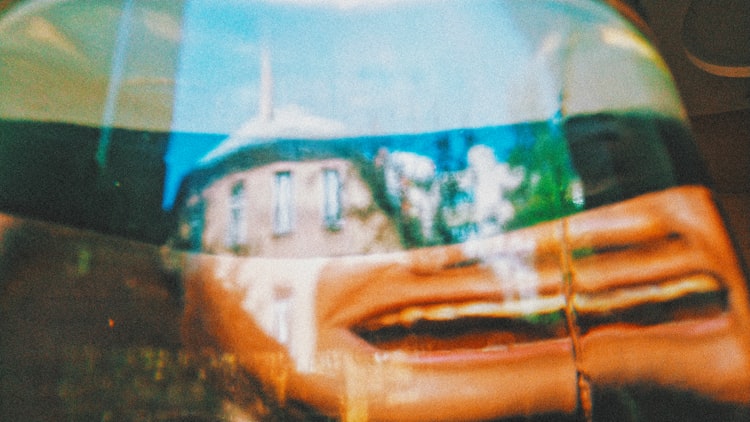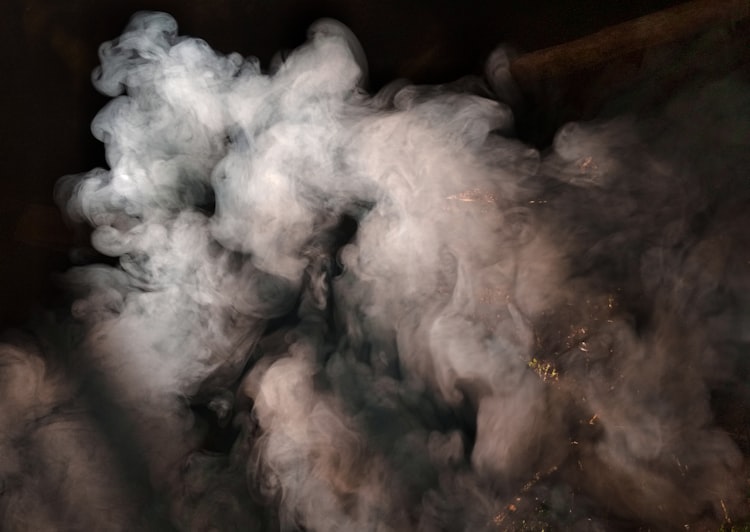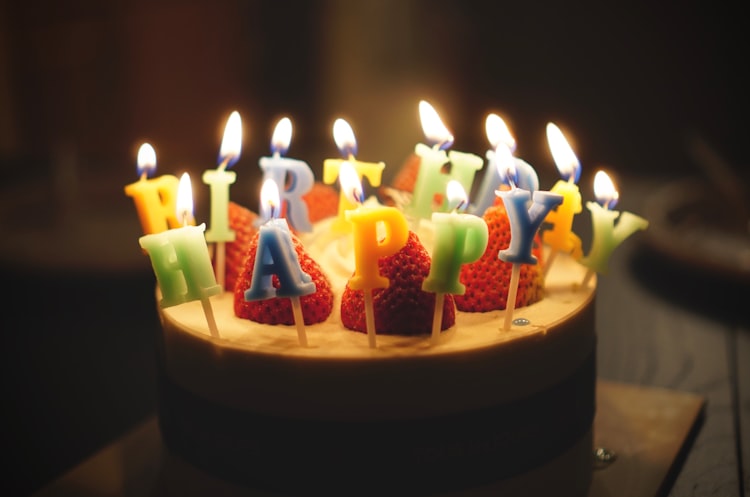The Apocalypses of Cheryl Dean, by Richard S. Crawford

Content warnings
Death. Disaster.
The light streaming in through the gap in the curtains seemed unnaturally bright. Cheryl got up out of bed and looked through the window to investigate.
Already, buildings were burning and melting. The moon was bloody. The sun hung gigantically in the sky, growing larger and redder as she watched, shielding her eyes.
It was easy to determine what had happened. The sun had undergone a sudden and anomalous expansion, ripping through the orbits of Mercury and Venus and now Earth, vaporizing those planets along the way.
She put on her facemask and went back to sleep.
Screams sounded from outside Cheryl's apartment the next morning. She rolled over in bed, annoyed, and thought about not getting up to look. It would be so much easier to just go back to sleep.
But the screams continued, and a few seconds later there were moans as well.
Fine, she thought. I guess I'd better go see what the fuss is.
She worked her way out from the sheets and wandered over to the window to look outside. Hundreds of people ran down the streets, fleeing some horrific enemy. Many had terrible wounds: bites, scratches, broken bones. Behind them, a horde of other people—gray-skinned, dressed in rags, covered in blood and flesh and some with exposed bones—tore after them.
Ah, Cheryl thought. Zombies. That wasn't new. But these zombies were different in that they were running and charging after their targets, more like the fast zombies from the Dawn of the Dead remake or the World War Z movie. Oh yes, she'd seen both when she was much, much younger.
Well, whatever. There was nothing to be done about it. If a zombie apocalypse was going to be today's end of the world, well, she just would accept it and move on.
She put in a pair of earplugs, and lay back down in bed.
The next morning, the zombies had vanished, naturally. The world was back to normal. The day went on without any sign of anything unusual. Nothing in the news. The Internet was devoid of any chatter about the coming apocalypse.
Maybe the world wouldn't end today after all? That'd be something new.
But then at about five o'clock that evening, a comet struck the moon, knocking it out of its orbit and crashing it into the earth.
Cheryl took a bath.
The next morning, it was a devastating plague that took out humanity. She wore a surgical mask she'd purchased a few weeks ago for just such an eventuality, and watched old movies on her computer.
Most mornings, Cheryl didn't even bother getting out of bed. There was never any point. The world was always going to end anyway.
But then one morning—the morning after a meteor the size of Texas struck the Earth and set fire to the atmosphere, destroying all life instantaneously—Cheryl awoke and found that she wasn't alone in her studio apartment.
“Who are you?” she asked the young woman who was sitting at her desk, staring through the window at the world outside and eating an apple. “What are you doing here?”
The woman turned away from the window with a gasp. “Oh my God,” she cried out. “I didn't see you there. I thought I was alone.”
Cheryl reached to her nightstand and grabbed her spectacles and slipped them on, all the while peering at the woman, trying to make out her features. There was something familiar about her, the way she held herself and the color of her hair.
“You!” she cried when she recognized the other woman at last. She hadn't seen that face for years. The last time had been five decades ago in the mirror. The girl's features were soft, fresh, slender. The hair was red instead of pearl-white. But it was definitely herself she was looking at. “How did you get here?”
Her younger self nodded toward the open front door. “Through there,” she said. “It was open. I was just looking for some food.”
“Food? Why are you looking for food here?”
“I'm sorry, I haven't eaten for two days. If you want me to leave, I will.”
Cheryl rubbed her temples. She had been homeless for a brief time after college and before her first job with a local hospice organization, and had occasionally even gone into open homes looking for food. But she certainly had no memory of going into a studio apartment and seeing an older version of herself sitting up in bed. This could not possibly be herself having come forward in time somehow. Though a time warp of some sort would be an interesting end to everything.
But she was lonely. She decided to let the young woman stay.
“Don't leave,” she said. “I'm low on food but you're welcome to share what I have. You're the first company I've had in weeks.”
The girl—she was older than she looked, early twenties, but Cheryl couldn't help thinking of her as a girl—leaned back in the chair and folded her jeans-clad legs underneath her. Cheryl remembered having that flexibility in her joints. It had been a long time.
“Seriously?” she said. “Weeks? Why are you so alone?”
“Well, since the world began ending every day, no one's come by. They're always all dead by sundown.”
The girl said nothing for a moment. She uncrossed her legs and leaned forward. Her eyes narrowed. “What do you mean the world's ending every day?”
Cheryl grabbed the spare pillow from beside her and hugged it. She knew she was crazy, talking to her younger self like this, but it was the first chance she'd had to talk to anyone about what was going on. “I mean that every day there's a new apocalypse. A zombie plague. Or a massive pandemic. Or a meteor striking the earth. Or the sun explodes. A couple of weeks ago there was a gamma ray burst from somewhere out in space that sterilized the planet. And every morning, things are back to normal as if nothing had happened.”
“Wow. That's messed up. You need to figure out why it's happening to you and stop it.”
“Maybe I died and went to Hell,” Cheryl speculated. “The thought has crossed my mind before. Maybe that's why it's happening to me.”
The girl shook her head. “No. No, I don't like that. You're not in Hell, because that would mean I am too, and I'm not. It could be something weird happening with time, or it could be that you're hopping dimensions like in that episode of Star Trek.”
Cheryl smiled. It had been several decades since she'd seen Star Trek, but she knew exactly the episode her younger self was talking about. It was the one where Worf jumped between timelines, each one more bizarrely different than the previous. It had been one of Cheryl's favorite episodes.
“You might be right,” she said at last. “Some sort of time thing, or a dimensional... breach, I suppose? After all, you're here. And you definitely should not be.”
The girl furrowed her brow. “I shouldn't be? I mean, I know I just walked in here, but...”
“Oh, no, it's not that. Listen, I'm not surprised that you don't recognize me. But take a closer look. Look at the pictures on the walls. Tell me what you see.”
The girl glanced at the pictures, then looked again at Cheryl. “Actually, I already know what you're trying to tell me. I know that you're me, fifty years in the future.”
“You already know?”
“Of course. It's impossible not to know. And, I think, I have something to tell you. Something you used to know. Something you've definitely forgotten.”
“What's that?”
And the girl told her.
The next morning, the girl was gone. And just before noon, the Large Hadron Collider was reactivated, and created a minuscule black hole that quickly engulfed the entire Earth, killing everyone.
Cheryl went outside to let the event horizon take her.
The truth is, she said, there is no apocalypse. But when you're dying, especially when you're dying alone, it can feel like the whole world is coming to an end.
But if you embrace it, then the end of the world becomes a release, setting you free.
Author’s note
I started this story when I was pondering the year 2020 and everything that had happened then, as well as about the wisdom we gain as we grow older and the wisdom we lose.
Richard S. Crawford
Richard is a writer and web programmer who lives in an appropriately ancient and drafty home in northern California, where he has not encountered a single apocalypse. He shares his home with his wife and more cats than he will admit to.
- Website: www.underpope.com
- Facebook: facebook.com/underpope
- Bluesky: underpope.com
- Mastodon: underpope@wandering.shop





Member discussion